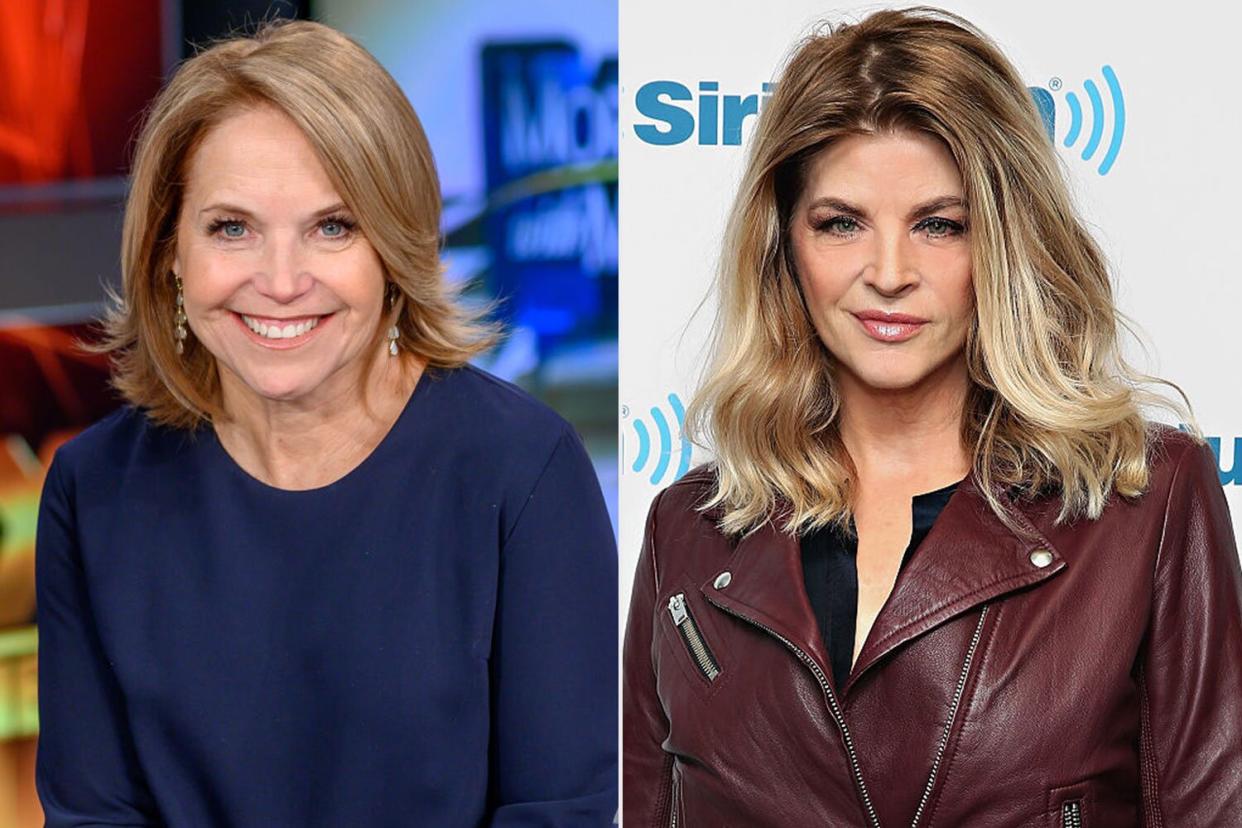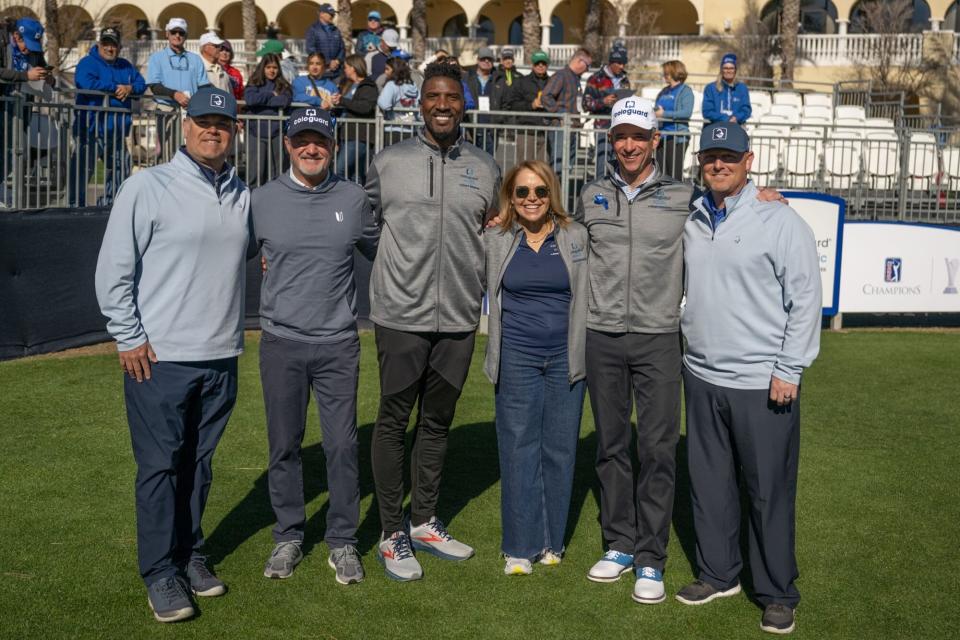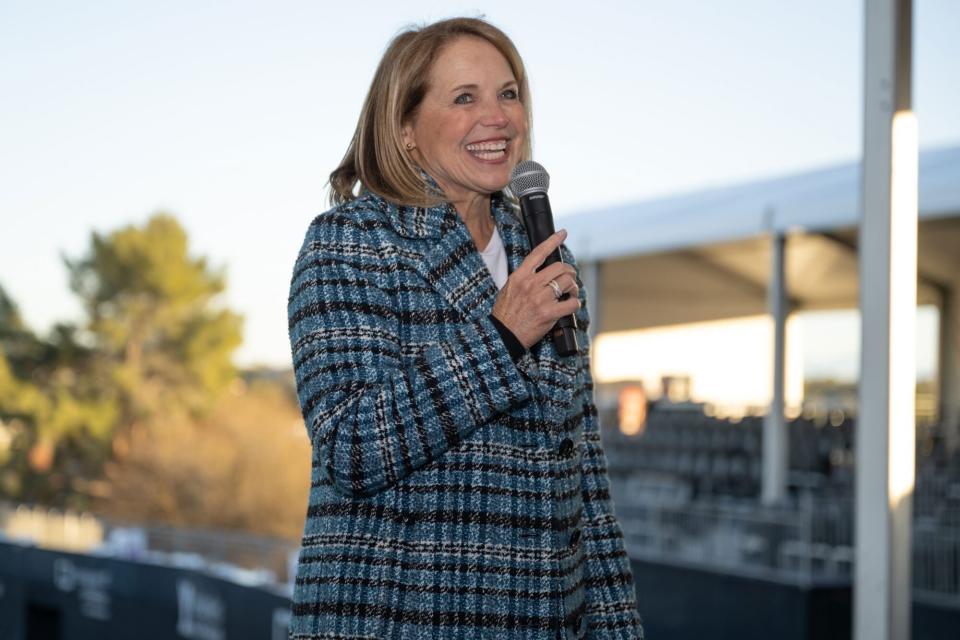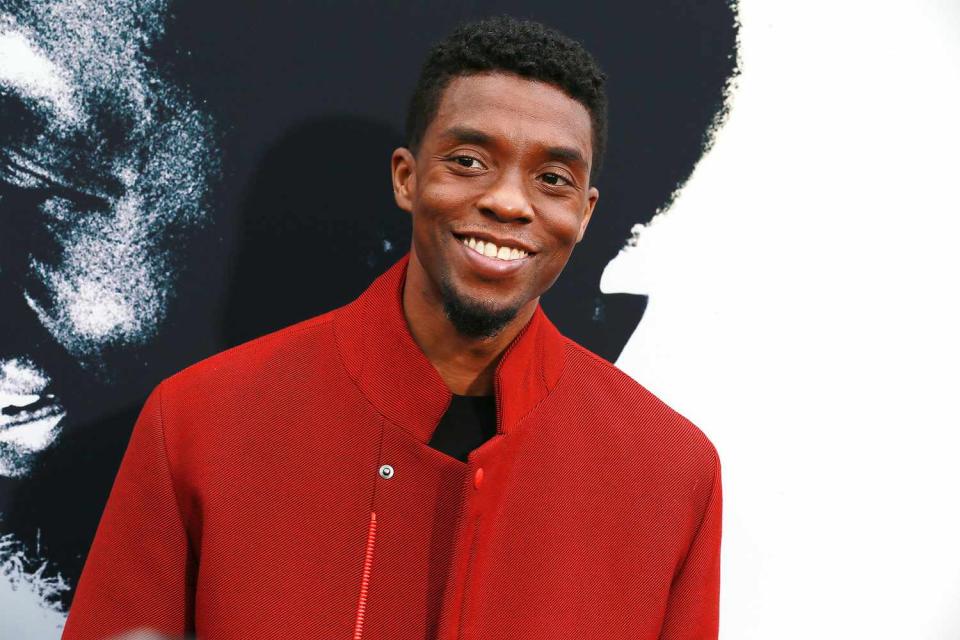Katie Couric Was 'Heartbroken' About Kirstie Alley's Death from Colon Cancer 'I Wondered If She Had Been Screened'

- Oops!Something went wrong.Please try again later.
- Oops!Something went wrong.Please try again later.
- Oops!Something went wrong.Please try again later.
getty (2)
After Katie Couric lost her husband to colon cancer 25 years ago, she became an advocate in the fight against the disease.
In an exclusive conversation with PEOPLE, the legendary journalist and entrepreneur, 66, shared her reaction when she found out that actress Kirstie Alley died of the same illness that took the life of her husband, Jay Monahan.
"I was heartbroken to hear it, and of course wondered if she had been screened," Couric tells PEOPLE. "And I think it just highlights the importance of getting screened when you're 45, and following your doctor's recommendations in terms of how often you should be screened."
She continues, "I think anyone we lose before their time from a preventable disease is a tragedy. And that's what I always wonder when I see someone who's died of colorectal cancer. I wonder, 'Gosh, if they had been screened or if they were screened, and did this really have to happen?'"

Cologuard Classic
To help spread awareness of the disease, which kills over 52,000 people in the U.S. every year, Couric teamed up with the Cologuard Classic, a golf tournament using their platform to share the stories of over 150 colon cancer patients, survivors and caregivers.
Couric says her goal is to share how "early detection is everything," and to spread the message that if people did their yearly screenings, a large number of cases could be avoided.
"It's one of the few cancers that you can nip in the bud," she says. "And if you have a polyp, it can be removed. Even if it's cancerous and hasn't penetrated the colon wall and gone into the lymph nodes, it can be cured quite easily. I think there's an over 90% cure rate if it's detected at its early stages."

Cologuard Classic
She also stressed the importance of watching out for symptoms even before the recommended age of 45, noting that her husband died at 42.
Notably, Oscar-nominated actor Chadwick Boseman also died of colon cancer at 43 years old.
RELATED: Chadwick Boseman Was 43 When He Died of Colon Cancer — and Cases in Young Adults Are Rising
"Chadwick is one of the people who I think his death has really highlighted the fact that more and more young people were dying of this disease, because when he was diagnosed, it was way before the recommended age for screening," Couric says.
She adds, "Similarly, with Jay, my husband, he was diagnosed at 41. And I often think if he had been screened at, gosh, even 40 or even 39 or 38, could we [have] found this? And, with a simple procedure or with a colonoscopy, saved his life? So it just doesn't have to happen."

Leon Bennett/Getty Images Chadwick Boseman
Boseman, who died in 2020, silently battled the illness for four years before his death, working on some of his most infamous projects in that time, including Black Panther and Da 5 Bloods.
Never miss a story — sign up for PEOPLE's free daily newsletter to stay up-to-date on the best of what PEOPLE has to offer, from juicy celebrity news to compelling human interest stories.
Couric shared how painful it was to watch someone she loved die from a preventable illness — if detected early.
"I admire the courage of people like Chadwick and my husband Jay, who only lived for nine months," she says. "My husband kept working. When his hair fell out, he got a hairpiece…It's heartbreaking. It's like living with your heart in a vice 24/7, if someone you love has this disease. So that's why it's so important to raise awareness and let people know that it's highly preventable."

